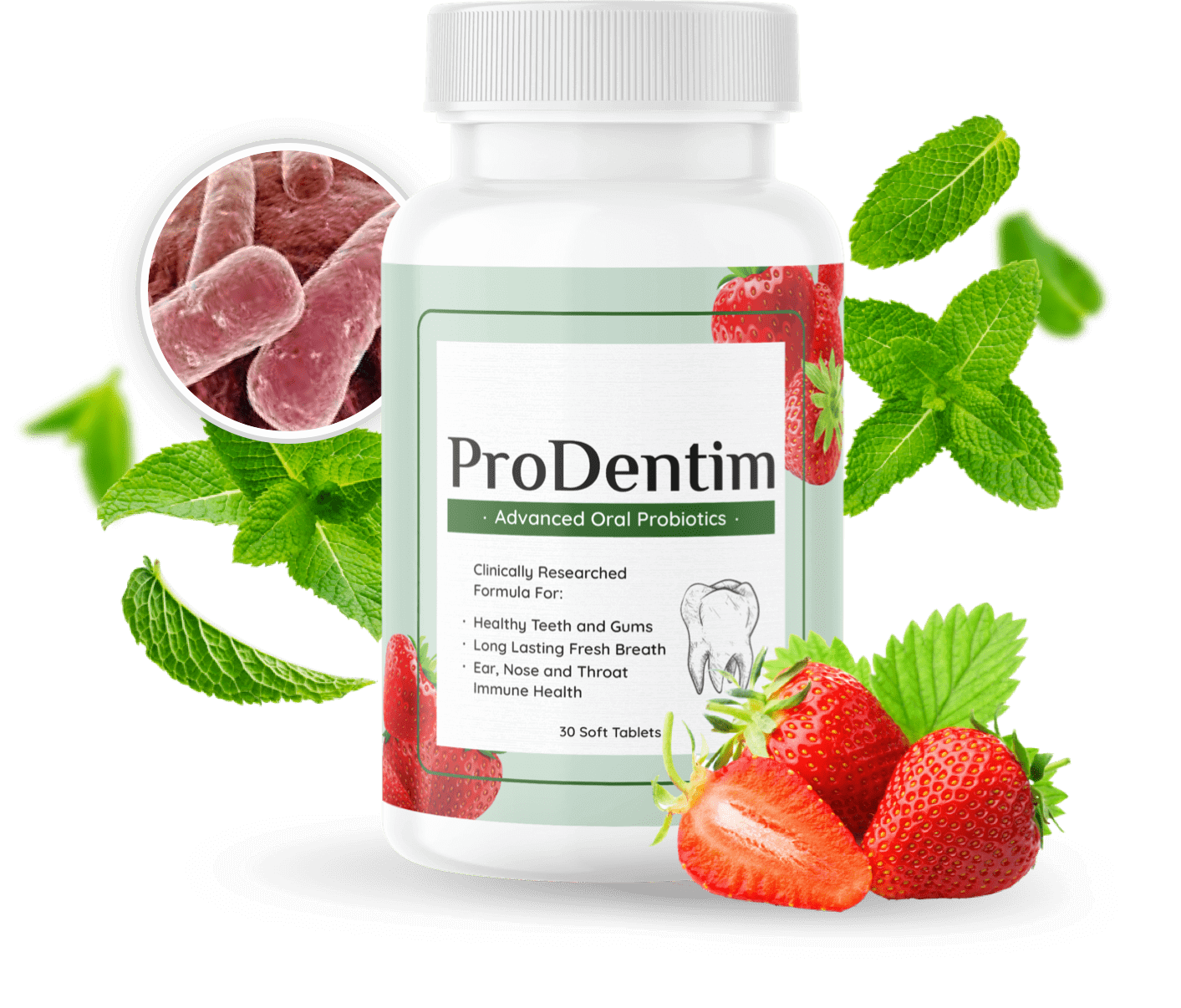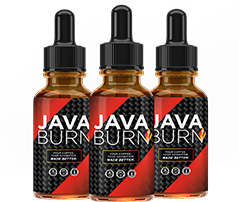Common Myths About Gut Health Debunked

Did you know that nearly 70% of adults experience some form of gut issue, from bloating to irritable bowel syndrome? The world of gut health is filled with misconceptions that can lead to confusion and poor dietary choices.
It’s time to separate fact from fiction. Gut health is crucial for overall well-being, influencing everything from digestion to mental health. Unfortunately, numerous myths surround this vital aspect of our health, often leading to misinformation.
By debunking these myths and uncovering the truth, we can make informed decisions to improve our gut health. This article will explore the most prevalent myths and reveal science-backed facts to help you achieve a healthier gut.
Key Takeaways
- Understanding the truth about gut health can lead to better overall health.
- Debunking myths is crucial for making informed dietary choices.
- Science-backed facts can help improve gut health.
- Recognizing the importance of gut health is the first step towards a healthier lifestyle.
- A healthier gut can lead to improved mental health and digestion.
Understanding Gut Health: The Basics
Understanding gut health is fundamental to appreciating its impact on our digestion, immune system, and overall well-being. Good gut health refers to a well-functioning digestive system supported by a diverse and balanced gut microbiome.
What Is Gut Health?
Gut health encompasses the complex interactions between the gut microbiome, the lining of the gut, and the immune system. A healthy gut microbiome is characterized by a rich diversity of microorganisms that play a crucial role in digestion and the absorption of nutrients.
Key Components of Gut Health
The key components of gut health include a balanced gut microbiome, a healthy gut lining, and an effective immune response. The gut microbiome produces certain vitamins, such as vitamin K and biotin, and aids in the breakdown of complex foods.
A balanced gut microbiome is essential for maintaining a healthy gut. The balance between different types of bacteria is crucial, as an imbalance, also known as dysbiosis, can lead to various health issues.
| Component | Function | Impact on Health |
|---|---|---|
| Gut Microbiome | Digestion, nutrient absorption, vitamin production | Influences overall health, immune function, and digestion |
| Gut Lining | Barrier against pathogens, absorption of nutrients | Affects immune function and overall health |
| Immune System | Defense against pathogens, regulation of inflammation | Impacts overall health and gut health |
Maintaining good gut health is crucial for overall well-being. It involves a combination of a balanced diet, adequate hydration, and a healthy lifestyle to support the gut microbiome and overall gut function.
Myth1: Probiotics Are a Cure-All
While probiotics are often touted as a cure-all for gut health, the reality is more nuanced. Probiotics are live microorganisms that are intended to have health benefits when consumed or applied to the body. However, their effectiveness can vary greatly depending on the individual, the specific probiotic strain, and the condition being treated.

The Science Behind Probiotics
Probiotics work by influencing the gut microbiome, which is the collection of microorganisms living in the gastrointestinal tract. A healthy gut microbiome is crucial for digestion, immune function, and even mental health. Probiotics can help maintain this balance by introducing beneficial bacteria into the gut.
The benefits of probiotics are supported by a growing body of research. Studies have shown that probiotics can be effective in managing symptoms of irritable bowel syndrome (IBS), reducing the duration of certain infections, and even supporting mental health through the gut-brain axis.
When to Use Probiotics
Probiotics are not a one-size-fits-all solution. They are particularly useful in certain situations, such as:
- After antibiotic use, to help restore the gut microbiome.
- For individuals with IBS or similar gastrointestinal disorders.
- In cases of compromised immune systems, where maintaining a healthy gut microbiome is crucial.
It’s essential to choose a probiotic supplement that is backed by scientific evidence and contains strains that are relevant to your specific health needs. Always consult with a healthcare professional before starting any new supplement regimen.
By understanding the science behind probiotics and using them judiciously, individuals can harness their benefits while avoiding the misconception that they are a cure-all for gut health issues.
Myth2: You Only Need Fiber for a Healthy Gut
Many believe that fiber is the sole nutrient necessary for maintaining a healthy gut, but this is far from the truth. While fiber is indeed crucial for gut health, it’s not the only nutrient that matters. A more nuanced understanding of gut health nutrition reveals that a variety of nutrients play significant roles in maintaining a balanced gut.
Types of Fiber: Soluble vs. Insoluble
Fiber comes in two main forms: soluble and insoluble. Soluble fiber dissolves in water, forming a gel-like substance that helps slow down digestion and can aid in lowering cholesterol levels. On the other hand, insoluble fiber does not dissolve in water and helps add bulk to stool, promoting regular bowel movements. Both types are essential for a healthy gut, but too much fiber—especially for individuals with Irritable Bowel Syndrome (IBS)—can lead to bloating and discomfort.
It’s essential to strike a balance in fiber intake. Gradually increasing fiber consumption and allowing the gut microbiome to adjust can help minimize potential side effects. Moreover, understanding the types of fiber and their effects can help individuals make informed choices about their diet.
Other Essential Nutrients for Gut Health
Beyond fiber, other nutrients are vital for maintaining a healthy gut. Polyphenols, found in foods like berries, green tea, and dark chocolate, are antioxidants that can help reduce inflammation in the gut. Omega-3 fatty acids, particularly EPA and DHA found in fatty fish, flaxseeds, and walnuts, also have anti-inflammatory properties that support gut health.
A diverse diet rich in various whole foods can provide the necessary nutrients for optimal gut health. Incorporating a range of fruits, vegetables, whole grains, lean proteins, and healthy fats can help support the gut microbiome. Additionally, staying hydrated and managing stress are also crucial components of maintaining a healthy gut.
In conclusion, while fiber is a critical component of gut health nutrition, it is not the only nutrient that matters. A balanced diet that includes a variety of nutrients, along with a healthy lifestyle, is key to supporting overall gut health.
Myth3: You’re Either Healthy or Unhealthy
Understanding that gut health is not just about being healthy or unhealthy, but rather a nuanced balance, is crucial for overall well-being. The concept of gut health being on a spectrum is vital because it acknowledges that individuals can move between different states of gut health based on various factors.
The Gut Health Spectrum
The gut health spectrum refers to the range of gut health states, from optimal to compromised. A balanced gut microbiome is key to being on the healthier end of this spectrum. Factors such as diet, lifestyle, and environmental exposures can influence an individual’s position on the gut health spectrum.

Maintaining Balance in the Gut
Maintaining balance in the gut involves several strategies, including dietary changes, stress management, and potentially, the use of probiotics or prebiotics. A diverse diet rich in fiber can help support a healthy microbiome.
| Strategy | Description | Benefit |
|---|---|---|
| Dietary Changes | Increasing fiber intake, reducing processed foods | Supports a diverse microbiome |
| Stress Management | Engaging in mindfulness, exercise, or meditation | Reduces negative impact on gut health |
| Probiotics/Prebiotics | Using supplements or probiotic-rich foods | Enhances beneficial bacteria |
By understanding the gut health spectrum and taking steps to maintain balance, individuals can improve their overall gut health and move towards a healthier state.
Myth4: Gluten Is Bad for Everyone
Contrary to popular belief, gluten is not inherently bad for everyone’s gut health. Gluten is a protein found in wheat, barley, and rye, and it can cause issues for individuals with specific conditions.
Understanding Gluten Sensitivity
Gluten sensitivity, or more accurately, non-celiac gluten sensitivity (NCGS), refers to a condition where individuals experience symptoms similar to celiac disease but without the same level of immune system activation and intestinal damage. Symptoms can include bloating, abdominal pain, and diarrhea.
The exact mechanisms behind NCGS are still being researched, but it is believed to involve a complex interplay between the gut, the immune system, and possibly other components of the diet.
Who Should Avoid Gluten?
Individuals with coeliac disease, an autoimmune disorder that causes the immune system to react to gluten, must avoid gluten entirely. For those with gluten sensitivity, reducing or avoiding gluten may alleviate symptoms.
| Condition | Gluten Reaction | Dietary Recommendation |
|---|---|---|
| Coeliac Disease | Immune system activation, intestinal damage | Strictly gluten-free |
| Gluten Sensitivity | Symptoms like bloating, abdominal pain | Gluten reduction or avoidance |
| No Sensitivity or Disease | No adverse reaction | No specific recommendation |
Unless diagnosed with coeliac disease or gluten sensitivity, eliminating gluten is not necessarily beneficial for gut health. A balanced diet that includes a variety of whole grains can be beneficial for overall health.
Myth5: All Fermented Foods Are Good for Your Gut
While fermented foods can be a valuable addition to a gut-friendly diet, their quality and quantity play a crucial role in their effectiveness. The world of fermented foods is diverse, ranging from yogurt and sauerkraut to kimchi and kefir. However, the benefits of these foods for gut health are not uniform.
Quality vs. Quantity in Fermented Foods
The quality of fermented foods is paramount because it directly affects their probiotic content. Probiotics are live microorganisms that confer health benefits when administered in adequate amounts. To reap the benefits, look for fermented foods that contain live cultures and have not been pasteurized, as pasteurization can kill off these beneficial microbes.
Quantity is also a consideration. Consuming fermented foods in moderation is key, as overconsumption can lead to an imbalance. For example, eating too much sauerkraut can lead to an excessive intake of salt. A balanced approach is to incorporate a variety of fermented foods into your diet.
“The key to benefiting from fermented foods is to consume them in a way that is balanced and mindful of their nutritional content.”
Common Fermented Foods to Consider
Some of the most beneficial fermented foods for gut health include:
- Yogurt with live cultures
- Sauerkraut rich in probiotics
- Kimchi, a spicy Korean fermented vegetable dish
- Kefir, a fermented milk drink
- Miso, a fermented soybean paste
When incorporating these foods into your diet, consider their preparation and storage. For instance, keeping fermented foods refrigerated can help preserve their probiotic content.

In conclusion, while fermented foods can be a great addition to a diet focused on gut health, it’s essential to consider both the quality and quantity of these foods. By choosing high-quality, probiotic-rich fermented foods and consuming them in moderation, individuals can support their gut health effectively.
The Role of Stress in Gut Health
The connection between stress and gut health is complex and multifaceted, influencing our digestive system in profound ways. Stress can significantly impact our gut health by disrupting the balance of the gut microbiome, which is crucial for proper digestion and overall well-being.
How Stress Affects Digestion
When we experience stress, our body releases stress hormones like cortisol. These hormones can disrupt the gut-brain axis, a bidirectional communication network between the central nervous system and the enteric nervous system of the gut. This disruption can lead to changes in gut motility, inflammation, and the secretion of digestive enzymes, ultimately affecting digestion.
Stress can also alter the composition of the gut microbiota, leading to a decrease in beneficial bacteria and an increase in pathogenic bacteria. This imbalance, known as dysbiosis, can impair digestion and contribute to various gastrointestinal disorders.
Tips for Reducing Stress Impact
Reducing stress is crucial for maintaining a healthy gut. Here are some effective strategies:
- Mindfulness and Meditation: Practicing mindfulness and meditation can help reduce stress levels by promoting relaxation and improving gut motility.
- Exercise: Regular physical activity can help alleviate stress and improve digestion by enhancing gut motility and promoting a balanced gut microbiome.
- Dietary Changes: Incorporating stress-reducing foods like fermented foods, omega-3 fatty acids, and fiber-rich foods can support gut health.
- Adequate Sleep: Ensuring sufficient sleep is vital for managing stress and supporting the health of the gut microbiome.
By adopting these strategies, individuals can mitigate the negative effects of stress on their gut health, promoting a healthier digestive system and overall well-being.
“The gut and the brain are connected in a complex interplay that affects our overall health. Managing stress is key to maintaining this delicate balance.”
Gut Health and Weight Management
A healthy gut microbiome is crucial for effective weight management, highlighting the need for a diet and lifestyle that support gut health. The relationship between gut health and weight is complex, involving various physiological processes.

The gut-brain axis plays a pivotal role in this relationship, facilitating communication between the gut and the brain. This axis is crucial for regulating appetite, metabolism, and weight.
The Gut-Brain Connection
The gut and the brain are connected through the gut-brain axis, a bidirectional communication network that involves neurotransmitters, hormones, and other signaling molecules. This connection allows for the exchange of information between the gut microbiome and the central nervous system, influencing various physiological processes, including those related to weight management.
A balanced gut microbiome produces certain neurotransmitters and hormones that can affect appetite and satiety signals, thereby influencing weight. For instance, a healthy gut microbiome can produce short-chain fatty acids, which have been shown to regulate appetite and improve metabolic health.
How Gut Health Influences Weight
Gut health can significantly influence weight through several mechanisms. A diverse and balanced gut microbiome is associated with a healthier weight, as it enhances the digestion and absorption of nutrients, regulates metabolic processes, and supports the immune system.
- A balanced gut microbiome can improve metabolic rate and enhance fat burning.
- It can also regulate appetite and reduce inflammation, both of which are factors in weight management.
- Furthermore, a healthy gut microbiome supports the integrity of the gut lining, preventing leaky gut syndrome, which can lead to metabolic issues and weight gain.
By focusing on maintaining a healthy gut through diet, lifestyle, and possibly probiotics, individuals can better manage their weight and improve overall health.
Dispelling the “Detox” Myth
As the wellness industry continues to grow, the notion of “detoxing” has become a topic of debate, particularly in relation to gut health. The human body has its own natural detoxification processes, and understanding how these work is crucial for maintaining overall health.
Your Body’s Natural Detox Process
The body has an efficient system for eliminating toxins, primarily managed by the liver and kidneys. These organs work tirelessly to filter out harmful substances from the blood, which are then excreted. This natural detoxification process is supported by the gut, where a significant portion of our immune system resides.
A healthy gut microbiome is essential for optimal detoxification. It aids in the breakdown and absorption of nutrients, produces certain vitamins, and helps regulate the immune system. When the gut is out of balance, it can impair the body’s ability to detoxify effectively.
Effective Ways to Support Detoxification
While the body has its natural detoxification processes, certain lifestyle choices and dietary habits can support and enhance this function. Here are some effective ways to promote natural detoxification:
- Hydration: Drinking plenty of water helps the kidneys function properly and aids in the elimination of toxins.
- Dietary Fiber: Consuming foods high in fiber supports the gut microbiome and promotes regular bowel movements, helping to remove toxins from the digestive system.
- Antioxidant-Rich Foods: Foods rich in antioxidants, such as fruits, vegetables, and nuts, help reduce oxidative stress and support overall health.
- Regular Exercise: Physical activity enhances circulation, supports the lymphatic system, and promotes sweating, all of which aid in detoxification.
Additionally, managing stress through techniques like meditation or yoga can also support the body’s natural detox processes by reducing the production of stress hormones, which can negatively impact gut health.
| Detoxification Support | Description | Benefits |
|---|---|---|
| Hydration | Drinking plenty of water | Aids kidney function and toxin elimination |
| Dietary Fiber | Consuming high-fiber foods | Supports gut microbiome and bowel movements |
| Antioxidant-Rich Foods | Eating fruits, vegetables, and nuts | Reduces oxidative stress and supports health |
| Regular Exercise | Engaging in physical activity | Enhances circulation and promotes sweating |
By focusing on these natural methods, individuals can support their body’s inherent detoxification processes, promoting overall health and well-being without relying on fad diets or unnecessary supplements.
The Importance of Regular Check-Ups
Monitoring your gut health through regular check-ups can significantly impact your overall well-being. Regular visits to a healthcare professional can help identify gut health issues early on, allowing for timely interventions that can prevent more severe problems from developing.
Why Gut Health Should Be Monitored
Gut health is a critical aspect of overall health, influencing everything from digestion to immune function. Regular monitoring can help detect imbalances or issues before they become serious. This proactive approach enables individuals to make informed decisions about their health, potentially avoiding complications associated with poor gut health.
Factors such as diet, stress, and lifestyle can all impact gut health. By keeping track of these factors and monitoring gut health, individuals can better understand how different elements affect their well-being and make necessary adjustments.

Signs You Need to See a Doctor
Certain symptoms can indicate that it’s time to consult a healthcare professional about gut health. These include persistent digestive issues, such as bloating, abdominal pain, or changes in bowel movements. Unexplained weight loss or gain can also be a sign of underlying gut health issues.
- Severe or persistent abdominal pain
- Blood in stool or black, tarry stools
- Chronic diarrhea or constipation
- Unexplained weight changes
If you’re experiencing any of these symptoms, it’s essential to seek medical advice. A healthcare professional can provide guidance on the best course of action and help determine the underlying cause of the symptoms.
Final Thoughts on Gut Health Misconceptions
Achieving optimal gut health requires a comprehensive understanding of the complex interactions within our digestive system. By debunking common myths and misconceptions, we can better appreciate the importance of maintaining a balanced gut microbiome.
Nourishing Your Gut Holistically
A holistic approach to gut health involves considering the intricate relationships between diet, lifestyle, and overall well-being. By incorporating a balanced diet rich in fiber, polyphenols, and other essential nutrients, individuals can support the growth of beneficial gut bacteria. This, in turn, can lead to improved digestion, a stronger immune system, and even enhanced mental clarity.
Evidence-Based Practices for Optimal Gut Health
Embracing evidence-based practices is crucial for maintaining optimal gut health. This includes staying informed about the latest research on probiotics, prebiotics, and other gut health supplements. By working with healthcare professionals and adopting a personalized approach to gut health, individuals can make informed decisions that support their overall well-being.
By adopting a holistic approach to gut health and embracing evidence-based practices, individuals can take control of their digestive health and unlock the full potential of their overall well-being.
FAQ
What is gut health, and why is it important?
Are probiotics a cure-all for gut health issues?
Is fiber the only nutrient needed for a healthy gut?
Should I avoid gluten entirely?
Are all fermented foods beneficial for gut health?
How does stress affect gut health?
Can a healthy gut microbiome support weight loss?
Are detox diets necessary for gut health?
How often should I check my gut health?
What are some evidence-based practices for maintaining gut health?
🌸 Discover Weight Management Supplements That Works — Handpicked for You
Curated health & beauty essentials our readers trust — explore your new self-care favorites.
🌸 Discover Beauty That Works — Handpicked for You
Curated health & beauty essentials our readers trust — explore your new self-care favorites.
💖 Connect with SmartWellnessBeauty
Join our wellness & beauty community for daily inspiration, mindful living, and radiant self-care — follow us across your favorite platforms.
Explore More ✨











What do you think?
Show comments / Leave a comment